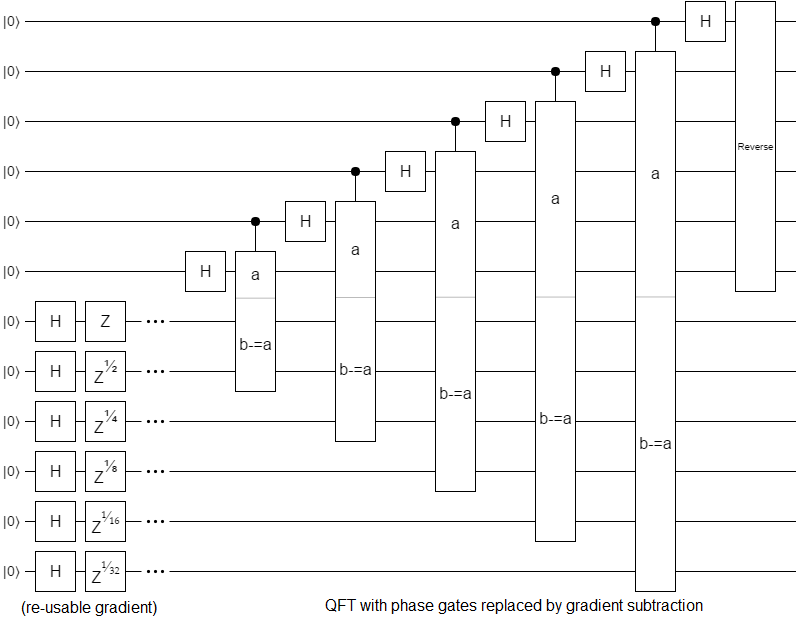I recently stumbled onto the idea of using a pre-existing re-usable phase gradient to implement the QFT, instead of having to keep re-applying exponentially precise phase gates. I'm looking for papers on this general idea (or improvements thereof).
I don't even know the technical name for this technique, so even that information would be useful.
An example QFT circuit showing the phasing-by-subtraction that I'm talking about (and the equivalent circuit in Quirk, where numbers have opposite endian-ness so lots of reversing is required):
Note that the above isn't quite as optimized as what I have in mind. In particular, when you break the subtractions down into H/CX/T gates you find that they start by undoing work the last subtraction ended with. This lets you save half of the T gates.

